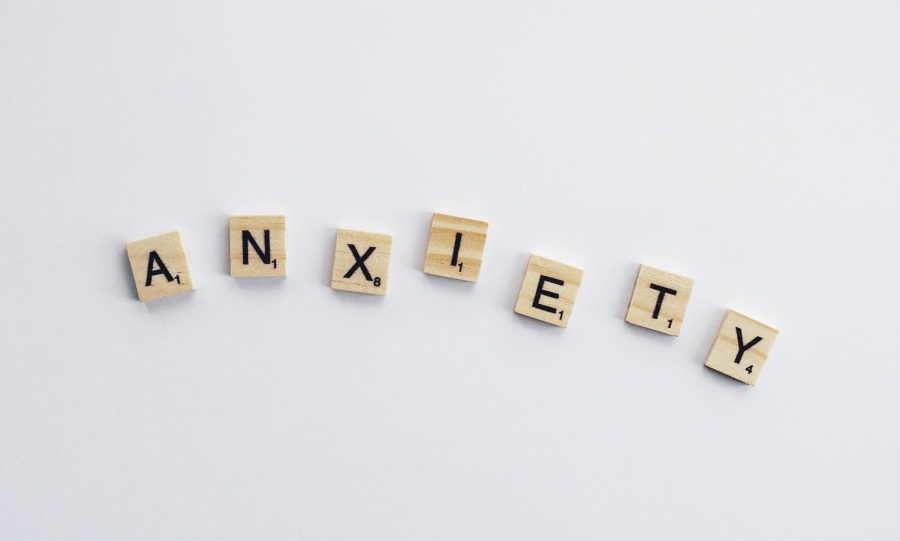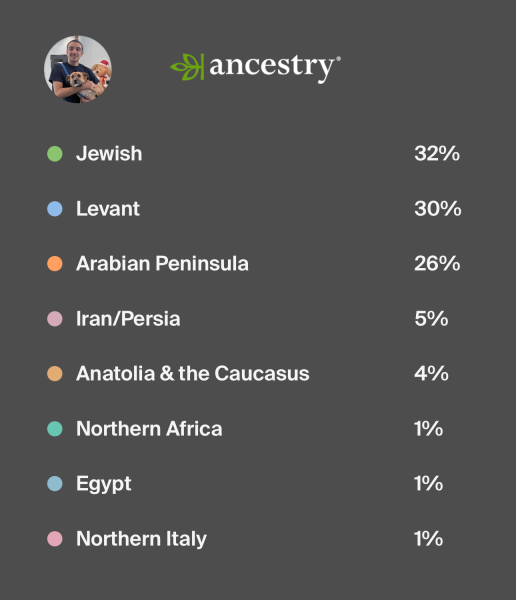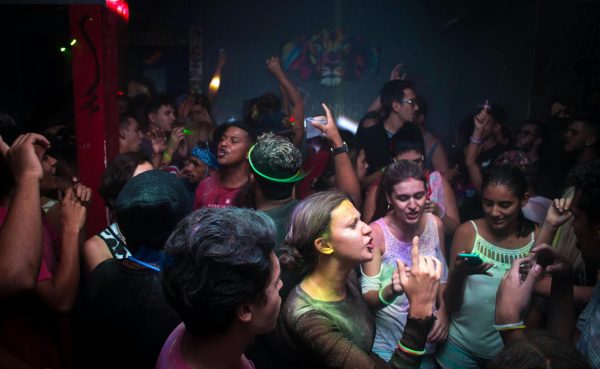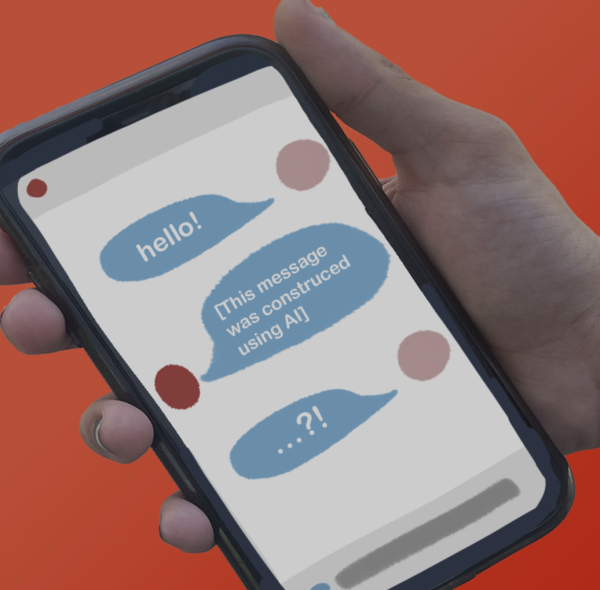You’re just not getting it: A reflection on anxiety
Diagnosed anxiety and occasional anxiety often fail to be separated. Photo by Suzy Hazelwood courtesy of Pexels.
Feeling anxious often gets looped in with having diagnosed anxiety, a big portion of where I believe anxiety’s misconception thrives.
Anxiety disorders are the most common mental health concern in America, eventually affecting nearly 30% of adults in their life. Despite how frequently anxiety occurs, it’s one of the most misunderstood aspects under the mental health microscope.
An individual feeling anxious is a temporary occurrence, typically stemming from feelings of nervousness or worry. Sometimes the anxious feeling stems from excitement, like anticipating a presentation for a class or getting ready to go out on a first date. Your stomach drops, you feel jittery — you ultimately want to evaporate into thin air for the moment being. It happens to everyone.
For some, diagnosed anxiety, on the other hand, is a constant state of mind and body working against each other. It manifests in various ways and can get worse over time. While treatable, in the moment it feels inescapable and it should not be confused with occasional anxiety.
A problematic aspect of anxiety’s misapprehension comes from the recent trend I’ve observed that being mentally ill is a cute personality trait to accessorize with and romanticize. I hope readers aren’t waiting for me to clarify why this is a problem.
Coming from someone whose anxiety forces me to be bedridden for hours, curled up with nothing but a vomit-bucket and a Pedialyte-pop, I promise I’m not feeling cute or quirky.
Equating occasional anxiety and diagnosed anxiety ostracizes the disorder from other mental illnesses such as depression, borderline personality disorder, bipolar disorder, schizophrenia, eating disorders and addictive behaviors because it’s insinuating that diagnosed anxiety is something that everyone experiences.
This harmful narrative ultimately diminishes the severity of the disorder when it comes to hearing someone has it. Do you feel just as concerned for someone when they voice their anxiety as you do when they voice any other of the disorders I previously listed?
All mental illnesses can be drastically damaging to the individual suffering and to those around them, so it’s important they each be regarded with the same sensitivity.
Anxiety disorders are difficult enough on their own, but to add outside perspectives from those who experience it from a short-lived standpoint and ensure anxiety “isn’t that bad,’’ further damages and invalidates those who live their day-to-day combating a legitimate diagnosis.
Taking away from the gravity of anxiety by perpetuating the stigma that diagnosed anxiety is a universal emotion also potentially prevents those who need help to reach out for it. People may become sheepish toward the disorder out of fear of being perceived as a victimizer, or may reduce and invalidate their emotions because they’re hearing it’s something everyone deals with.
I went the majority of my life without realizing I have anxiety. The puzzle pieces didn’t begin to fit together until I moved to Chico, where my roommate pointed out my own mannerisms that paralleled her anxiety.
It blew my mind the first time I realized that not everyone is in a never-ending war with themselves. And while my roommate and I discovered our anxieties shared similar characteristics, we also recognized our differences in the way our bodies release the anxiety we experience.
For a long time I thought you couldn’t have diagnosable anxiety if you didn’t go through panic attacks, which is part of the reason why my anxiety flew over my head. My anxiety isn’t exhibited in that way.
Alternatively to panic attacks, I’m substituting uncontrollable vomiting episodes — choose your fighter. I have vivid recollections from my childhood up until my current years where I missed out on numerous occasions due to the way my anxiety expressed itself.
Plain and simple, it felt humiliating to not be a part of the things I wanted to be involved in all because I was a world-class projectile vomiter. I couldn’t help but feel like I was at fault because I was allowing myself to get “too excited” or “too nervous.”
Whether nervous or eager, there has always been a thin line when it comes to how much I can feel before my brain gives out and pushes my body over the edge.
I remember trying to psych myself out at a young age in order to refrain from getting myself too worked up and furthermore getting sick. I’d think, “Don’t look forward to that. It’s not even going to be fun and you’ll have a terrible time.”
Unfortunately my 10-year-old self’s poor attempt at reverse psychology proved to be no match to my anxiety and the list of school events, field trips, birthday parties, first days and special occasions that I missed out on continued to build up — my personal root of FOMO.
My mom put me through natural treatment for my anxiety when I was in fourth grade, but it took me time to realize that I wasn’t just visiting a nice lady who had a cool Sandscript for me to play with every Friday for 45 minutes.
On top of my anxiety sparking me to become physically ill constantly, I was also pulling out my hair. It got to the point where I had hand-plucked nearly all of my eyebrows and eyelashes, and I began to pick at the hair on my scalp.
I was ashamed of how I looked, scared because I had no control over it, and even worse I couldn’t understand why I was doing it. I was mortified then and for many years to come after that — something detrimental to add onto the pre-existing struggles that come with being a developing young girl.
Part of the treatment I went through with my therapist used a stuffed animal monkey covered in black dots drawn on by a felt pen. Whenever my anxiety presented itself moving forward, I was instructed to tap on myself where I felt the urge to pick at, then tap on the stuffed animal’s dots on the same area in return.
I don’t remember my anxious-habits gradually diminishing, but they did. I’m enormously grateful for my improvement, and I’m not embarrassed to say a lot of that gratitude is due to the marked-up monkey I brought to sleepovers at 12-years-old that a lot of my friend’s parents probably thought could use a good wash.
I want to clarify that my intent is not to take away from or minimize the struggles of those whose anxiety appears different from mine, nor to take away from those who experience anxiety on occasion. My point is to distinguish the difference between anxiety as a disorder and anxiety upon circumstance, bring awareness to the reality of the disorders and potentially provide reassurance to those who feel alone regarding the way their anxiety takes hold on them.
People who experience occasional anxiety can develop anxiety disorders. It’s important to be aware of our emotions in order to take the steps to better our bodies and minds, and this begins with proper resources and education.
And yes, my eyebrows and eyelashes grew back.
For more information about all forms of anxiety, temporary or fixed, or mental health in general, click here.
If you’re struggling with mental health, make an appointment at WellCat Counseling Center or reach out to one of the hotlines listed below:
- National Suicide Prevention Lifeline – 1-800-273-8255
- ProtoCall crisis line – 530-898-6345
- Butte County Behavioral Health – 1-800-334-6622 or 530-891-2810
Ellie Marty can be reached at [email protected]


















